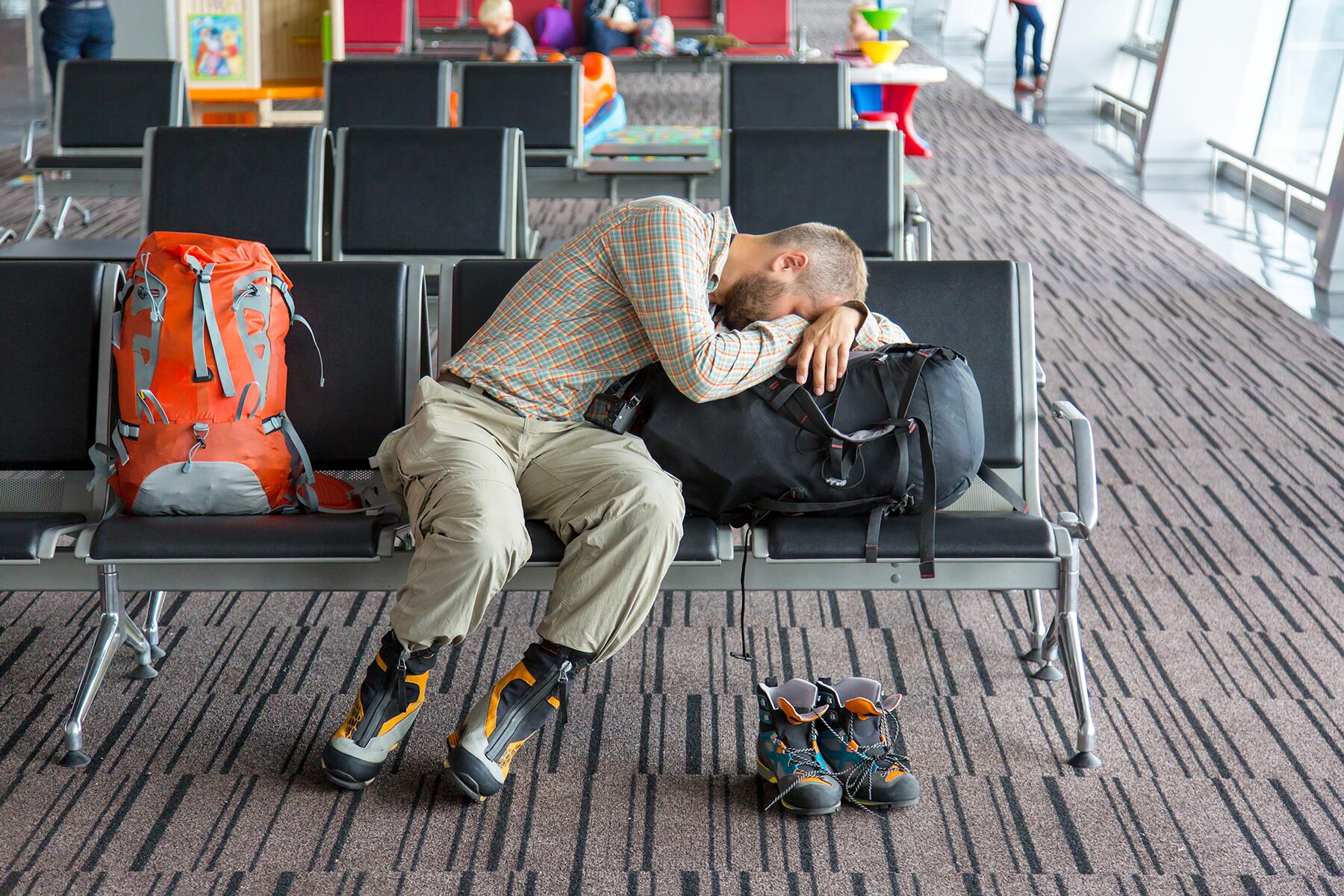This isn't over yet.
On April 2, the Centers for Disease Control and Prevention announced that fully vaccinated people can travel at low risk to themselves. Those who are traveling domestically don’t need to get tested before or after, unless their destination requires it, and they don’t need to self-quarantine.
For international travel, the U.S. government doesn’t require those leaving to be tested before the trip, but travelers do need to produce a negative test to enter the country and take another test three to five days after arrival. They don’t need to self-quarantine post-travel.
All travelers are still required to wear face masks, maintain social distance, and avoid crowds.
Dr. Rochelle Walensky, director of the CDC, shared the welcome update in her briefing, also saying, “Fully vaccinated grandparents can fly to visit their healthy grandkids without getting a COVID-19 test or self-quarantining, provided they follow the other recommended prevention measures while traveling.”
Mixed Feelings
In the U.S., more than 16% of the population has been fully vaccinated (you’re considered fully vaccinated two weeks after two doses of Moderna or Pfizer, or two weeks after the single dose of Johnson & Johnson). According to a CDC study, the risk of infection has reduced 90% after the two doses of Pfizer and Moderna vaccines.
But the fight isn’t over yet.
“The risks of SARS-CoV-2 infection in fully vaccinated people cannot be completely eliminated as long as there is continued community transmission of the virus. Vaccinated people could potentially still get COVID-19 and spread it to others.”
The cases and hospitalization are rising in the country and COVID variant B.1.1.7 is a new threat. Despite expert warnings, states have eased up restrictions and travel is gaining momentum during spring break. Health experts are concerned because the country is not out of the danger zone yet—only 56 million adult Americans have been fully vaccinated.
Top Picks for You
Recommended Fodor’s Video
The research is still ongoing, but CDC’s science brief makes it clear that “the risks of SARS-CoV-2 infection in fully vaccinated people cannot be completely eliminated as long as there is continued community transmission of the virus. Vaccinated people could potentially still get COVID-19 and spread it to others.”
So despite updating its guidelines, the public health agency still advises against traveling right now. Dr. Walensky said, “While we believe that fully vaccinated people can travel at low risk to themselves, CDC is not recommending travel at this time due to the rising number of cases.”
Uptick in Travel
Last month, the CDC shared guidelines on what vaccinated individuals were allowed to do, including visiting other vaccinated people without masks and unvaccinated people from a single household. But it maintained its stance on travel, “Delay travel and stay home to protect yourself and others from COVID-19, even if you are vaccinated.” On March 15, Dr. Walensky said in a briefing, “I’m pleading with you, for the sake of our nation’s health. These should be warning signs for all of us. Cases climbed last spring. They climbed again in the summer. They will climb now if we stop taking precautions when we continue to get more and more people vaccinated.”
However, it didn’t deter travelers.
In March, the Transportation Security Administration reported that more than one million passengers passed through security every day for 10 consecutive days. With travelers going strong on flight bookings, airlines are expanding their network and adding routes and flights to meet demands. Hotel occupancy is also going up; Miami has almost reached its pre-COVID level occupancy with 72% occupancy rates in March and 70% in April.
With vaccines becoming available to all adults by May, it’s a possibility that this summer will look different than last. People have already started planning and booking, with growth noticed in searches for flights and hotels. Data shared by Scott’s Cheap Flights revealed that 83% of its members planned to take two or more domestic trips in 2021 and 86% planned to travel abroad.
Data shared by Scott’s Cheap Flights revealed that 83% of its members planned to take two or more domestic trips in 2021 and 86% planned to travel abroad.
After a year of restrictions, travel confidence has been going up since vaccinations started. A study by Deloitte revealed that 46% of U.S. adults surveyed feel safe staying in a hotel while 34% feel safe taking a flight after the vaccine rollout. Deep hotel discounts and cheap flights have been a trend all of 2020, but experts warn that it might not be the case this year—the fares will stabilize because people have started traveling.
Florida has seen an increase after spring breakers flew to the state—Miami Beach imposed a curfew to control the crowds and arrests were made. In fact, a sketch on Saturday Night Live poked fun at these revelers, with “we’re so close to the end, let’s ruin it!” Health experts in the country have been nervous about spring break and Easter travel, concerned about another wave in the country. Spring break last year was a major superspreader, so many schools canceled it this year. It hasn’t stopped students though. The younger population is still largely unvaccinated, so it has the potential to lead to another bad event, especially since the variant cases are rising in the state.
What Precautions Should You Take if You Must Travel?
Dr. William Lang, Medical Director of JobSiteCare and WorldClinic, says, “For now, at least, travel precautions should not significantly differ whether or not you are vaccinated.” He advises wearing a mask and avoiding crowded areas, including airport lounges. All social distancing and hygiene practices should be followed.
Federal law requires masks on all modes of public transport. Before you plan a holiday, check restrictions and guidelines at your destination. Some countries are still banned and travelers will not be allowed to enter if they have traveled to those (China, the UK, Schengen Area, Iran, Ireland, Brazil, and South Africa). Vaccinated people still need to be tested before they fly into the U.S. and three to five days after travel. If you test positive, you will need additional funds for delays and stay, so keep that in mind.
For domestic travel, check state guidelines, testing requirements, and quarantine information before you plan your trip. Another thing to check is if the destination is already overrun with tourists (here’s looking at you, Florida). You should monitor the situation at your place of arrival and avoid places that are witnessing a surge.
“Finally, know what the medical resources are at your destination. If you do contract COVID, you will not be allowed to travel commercially for 10 days, so knowing how you will get care at the destination is important,” Dr. Lang concludes.




Be aware that our various medical & most travel insurances DO NOT cover Covid testing...what r the costs? In Mexico, we learned that this very SPECIFC type test ranged from $120-$150US, per person. The CDC, etc., fail to tell us that this is not a basic test.